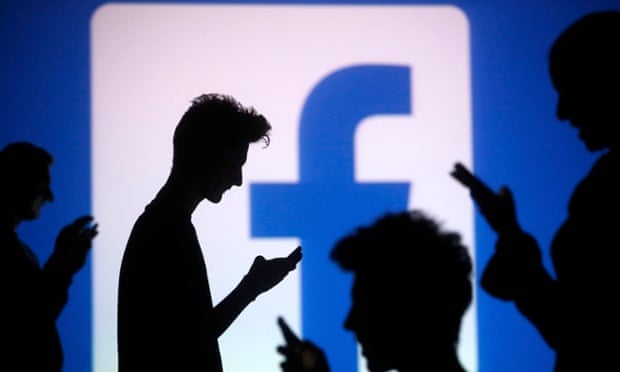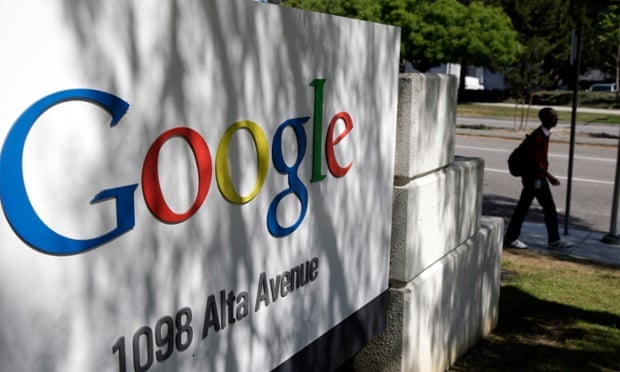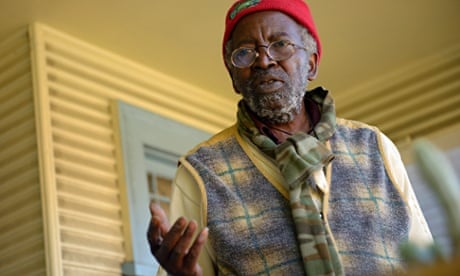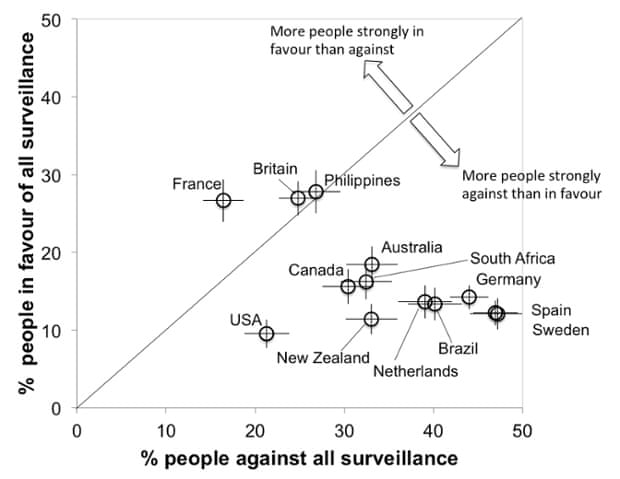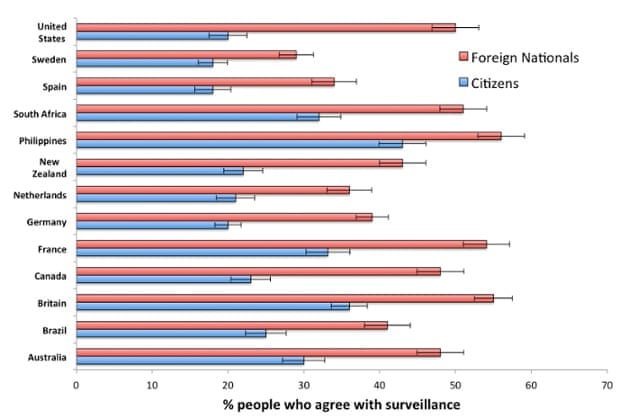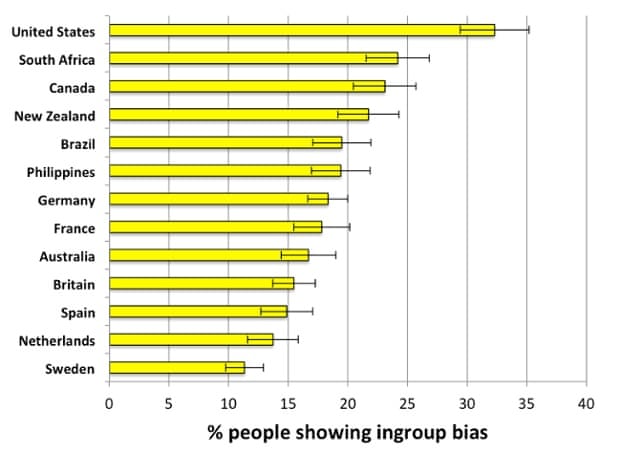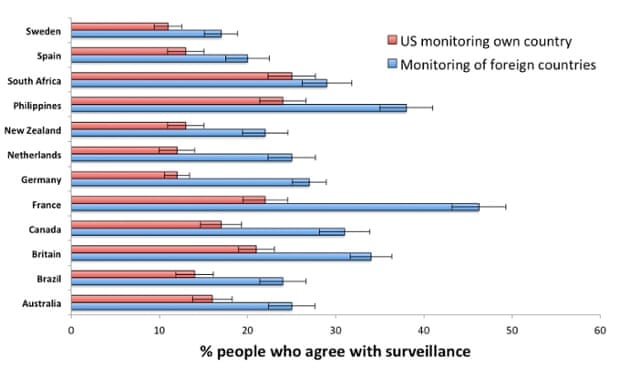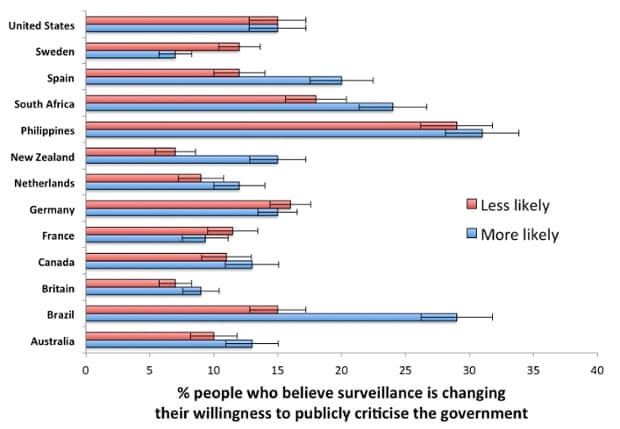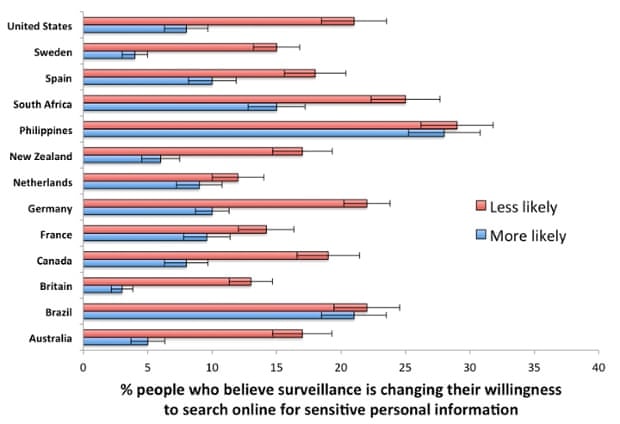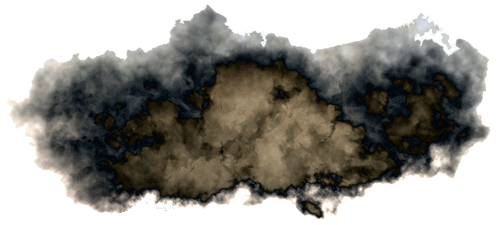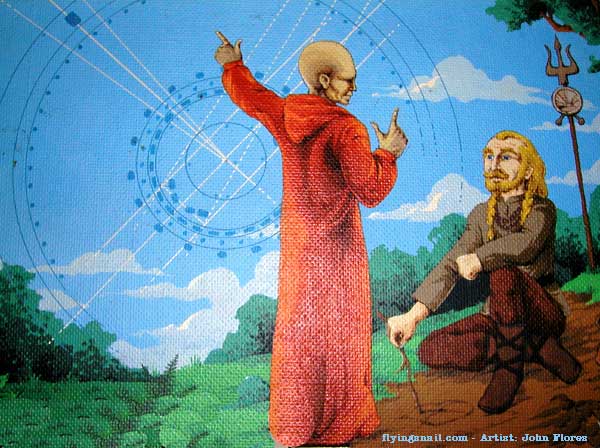Why Not Try Love Again by Jumpin' Jupiter
BOPTIME ~ Saturdays, 6 AM/EST, ListenARPSN Heliplot Audio Control
Stop Play
It may be a good idea to stay off Internet April 1st?
Facebook 'tracks all visitors,
breaching EU law'Exclusive: People without Facebook accounts, logged out users, and EU users who have explicitly opted out of tracking are all being tracked, report says
Facebook tracking of users using cookies breaches EU privacy law, report finds.
Photograph: Dado Ruvic/ReutersSamuel Gibbs, Tuesday 31 March 2015 05.00 EDT, theGuardian source
Facebook tracks the web browsing of everyone who visits a page on its site even if the user does not have an account or has explicitly opted out of tracking in the EU, extensive research commissioned by the Belgian data protection agency has revealed.
The report, from researchers at the Centre of Interdisciplinary Law and ICT (ICRI) and the Computer Security and Industrial Cryptography department (Cosic) at the University of Leuven, and the media, information and telecommunication department (Smit) at Vrije Universiteit Brussels, was commissioned after an original draft report revealed Facebook's privacy policy breaches European law.
The researchers now claim that Facebook tracks computers of users without their consent, whether they are logged in to Facebook or not, and even if they are not registered users of the site or explicitly opt out in Europe. Facebook tracks users in order to target advertising.
The issue revolves around Facebook's use of its social plugins such as the "Like" button, which has been placed on more than 13m sites including health and government sites.
Facebook places tracking cookies on users' computers if they visit any page on the facebook.com domain, including fan pages or other pages that do not require a Facebook account to visit.
When a user visits a third-party site that carries one of Facebook's social plug-ins, it detects and sends the tracking cookies back to Facebook - even if the user does not interact with the Like button, Facebook Login or other extension of the social media site.
EU privacy law states that prior consent must be given before issuing a cookie or performing tracking, unless it is necessary for either the networking required to connect to the service ("criterion A") or to deliver a service specifically requested by the user ("criterion B").
The same law requires websites to notify users on their first visit to a site that it uses cookies, requesting consent to do so.
A cookie is a small file placed on a user's computer by a website that stores settings, previous activities and other small amounts of information needed by the site. They are sent to the site on each visit and can therefore be used to identify a user's computer and track their movements across the web.
Cookies allow saved preferences and other important features of websites and services, but
can be used to track and identify users. Photograph: Cristina Quicler/AFP/Getty Images"We collect information when you visit or use third-party websites and apps that use our services. This includes information about the websites and apps you visit, your use of our services on those websites and apps, as well as information the developer or publisher of the app or website provides to you or us," states Facebook's data usage policy, which was updated this year.
Facebook's tracking practices have 'no legal basis'
An opinion published by Article 29, the pan-European data regulator working party, in 2012 stated that unless delivering a service specifically requested by the user, social plug-ins must have consent before placing a cookie. "Since by definition social plug-ins are destined to members of a particular social network, they are not of any use for non-members, and therefore do not match 'criterion B' for those users."
The same applies for users of Facebook who are logged out at the time, while logged-in users should only be served a "session cookie" that expires when the user logs out or closes their browser, according to Article 29.
The Article 29 working party has also said that cookies set for "security purposes" can only fall under the consent exemptions if they are essential for a service explicitly requested by the user - not general security of the service.
Facebook's cookie policy updated this year states that the company still uses cookies if users do not have a Facebook account, or are logged out, to "enable us to deliver, select, evaluate, measure and understand the ads we serve on and off Facebook".
The social network tracks its users for advertising purposes across non-Facebook sites by default. Users can opt out of ad tracking, but an opt-out mechanism "is not an adequate mechanism to obtain average users informed consent", according to Article 29.
"European legislation is really quite clear on this point. To be legally valid, an individual's consent towards online behavioural advertising must be opt-in," explained Brendan Van Alsenoy, a researcher at ICRI and one of the report's author.
"Facebook cannot rely on users' inaction (ie not opting out through a third-party website) to infer consent. As far as non-users are concerned, Facebook really has no legal basis whatsoever to justify its current tracking practices."
Opt-out mechanism actually enables tracking for the non-tracked
The researchers also analysed the opt-out mechanism used by Facebook and many other internet companies including Google and Microsoft.
Users wanting to opt out of behavioural tracking are directed to sites run by the Digital Advertising Alliance in the US, Digital Advertising Alliance of Canada in Canada or the European Digital Advertising Alliance in the EU, each of which allow bulk opting-out from 100 companies.
But the researchers discovered that far from opting out of tracking, Facebook places a new cookie on the computers of users who have not been tracked before.
"If people who are not being tracked by Facebook use the 'opt out' mechanism proposed for the EU, Facebook places a long-term, uniquely identifying cookie, which can be used to track them for the next two years," explained Günes Acar from Cosic, who also co-wrote the report. "What's more, we found that Facebook does not place any long-term identifying cookie on the opt-out sites suggested by Facebook for US and Canadian users."
The finding was confirmed by Steven Englehardt, a researcher at Princeton University's department of computer science who was not involved in the report: "I started with a fresh browsing session and received an additional 'datr' cookie that appears capable of uniquely identifying users on the UK version of the European opt-out site. This cookie was not present during repeat tests with a fresh session on the US or Canadian version."
Facebook sets an opt-out cookie on all the opt-out sites, but this cookie cannot be used for tracking individuals since it does not contain a unique identifier. Why Facebook places the "datr" cookie on computers of EU users who opt out is unknown.
'Privacy-friendly' design
For users worried about tracking, third-party browser add-ons that block tracking are available, says Acar: "Examples include Privacy Badger, Ghostery and Disconnect. Privacy Badger replaces social plug-ins with privacy preserving counterparts so that users can still use social plug-ins, but not be tracked until they actually click on them.
"We argue that it is the legal duty of Facebook to design its services and components in a privacy-friendly way," Van Alsenoy added. "This means designing social plug-ins in such a way that information about individual's personal browsing activities outside of Facebook are not unnecessarily exposed."
Facebook is being investigated by the Dutch data protection authority, which asked the social network to delay rollout of its new privacy policy, and is being probed by the Article 29 working party.
"We recently updated our terms and policies to make them more clear and concise, to reflect new product features and to highlight how we're expanding people's control over advertising," said a Facebook spokesperson in response to the original report.
A Facebook spokesperson said: "This report contains factual inaccuracies. The authors have never contacted us, nor sought to clarify any assumptions upon which their report is based. Neither did they invite our comment on the report before making it public. We have explained in detail the inaccuracies in the earlier draft report (after it was published) directly to the Belgian DPA, who we understand commissioned it, and have offered to meet with them to explain why it is incorrect, but they have declined to meet or engage with us. However, we remain willing to engage with them and hope they will be prepared to update their work in due course."
"Earlier this year we updated our terms and policies to make them more clear and concise, to reflect new product features and to highlight how we're expanding people's control over advertising. We're confident the updates comply with applicable laws including EU law."
• Facebook's privacy policy breaches European law, report finds
Amestizo ~ BLOG + NEW: http://amestizo.bigcartel.com/
Randy Hurley 2015: We Need to Awaken
[Ed. Note:
Video has been posted as a link because Google Is Evil and seldom, if ever, used here!]
Norman Greenbaum
Critically Injured
Spirit in the sky ~ Norman Greenbaum TKV
from MCTomkat ~ https://vimeo.com/86594691A motorcyclist was killed and internationally known singer-songwriter Norman Greenbaum was critically injured Saturday in a crash west of Santa Rosa.
The CHP identified Greenbaum, 72, best known for his 1969 hit “Spirit in the Sky,” as a passenger in a Subaru Outback that was involved in the 3:20 p.m. crash on Occidental Road near Piezzi Road. [ click to continue reading @ The Press Democrat ]
Paul Krassner ~ The Realist, Writer, Comic, Investigative Satirist
Author Terry Bisson, at The Arcade,
interviews Paul Krassner, in the
Mojave, via Skype.When: Thursday, April 02 2015 @ 07:00 PM - - 09:00PM
Contact: Green Arcade ~ The Bookstore in the Hub
Where: 1680 Market St. (near Octavia)
San Francisco, CA 94102via PM Press
Description:
On Thursday, April 2nd, join immortal, immoral, revered, and reviled icon of American humor Paul Krassner via Skype at the Green Arcade in San Francisco. Paul will discuss his new PM Press Outspoken Author Series book, Patty Hearst & The Twinkie Murders: A Tale of Two Trials with award winning author and series editor Terry Bisson. Paul will appear via video feed, and questions are welcome from the entire audience. The event is free and books will be available for purchase. For more information, please click the web link below.
Patty Hearst & The Twinkie Murders is a darkly satiric take on two of the most famous cases of our era: the kidnapping of heiress Patty Hearst, and the shocking assassination of San Francisco Mayor George Moscone and gay leader Harvey Milk. As a reporter for the Berkeley Barb, Paul Krassner was ringside at the spectacular California trials. Krassner's deadpan, hilarious style captures the nightmare reality behind the absurdities of the courtroom circus.
Using his infamous satiric pen and investigative chops, Krassner gets to the truth behind the events: the role of the police and FBI, the real deal with Patty and the SLA, and what really happened in Patty’s infamous closet.
Plus: A merciless exposé of the "Taliban" wing of the gay movement and their scandalous attacks on alt-rock star Michelle Shocked. Also featured is our Outspoken Interview, an irreverent and fascinating romp through the secret history of America's radical underground. Names will be named.
Praise for Paul Krassner and Patty Hearst & The Twinkie Murders
“Krassner is an expert at ferreting out hypocrisy and absurdism from the more solemn crannies of American culture.” —New York Times
“The FBI was right—this man is dangerous—and funny, and necessary.” —George Carlin
About the Author:
Creator of the Realist, the legendary underground magazine that many credit as the beginning of the radical "new journalism" of the 1960s, Paul Krassner is an immortal, immoral, revered, and reviled icon of American humor. Wielding satire as a weapon, he began the assault on middle America known today as the "counterculture" and is still a hero to radicals and a menace to the establishment. He now lives near Palm Springs disguised as an old man.
Terry Bisson's PM Press books include, Fire on the Mountain, The Left Left Behind, & TVA Baby.
Willie Nelson to open
chain of marijuana storesVeteran country star plans to launch his own brand of weed, Willie’s Reserve, to sell in states where marijuana is legal
Willie Nelson … Shopkeeper in waiting. Photograph: USA Network/USA Network/NBCU Photo BankGuardian music, Friday 27 March 2015 04.42 EDT, theGuardian Source
With marijuana becoming legal in an increasing number of US states, long time weed advocate Willie Nelson is to launch is own brand of the drug, as well as stores to sell it.
The 81-year-old country legend let slip his plans to launch his Willie’s Reserve brand while talking to the Daily Beast, which followed up by interviewing the infant brand’s spokesperson, pot lobbyist Michael Bowman.
“Right now we’ll focus on the states where legalisation has occurred, and as new states open up, those opportunities will present themselves on a state-by-state basis,” Bowman said, adding that “there will be movement” within the next year on opening the store.
“This is a culmination of Willie’s vision, and his whole life,” Bowman said. “I’m not sure any of us could have predicted how fast the dominoes would start falling once they started falling [in terms of legalisation].”
In 2012, Nelson spoke to the Guardian about legalisation and his own views on marijuana. “It’s coming. It has to, because economically we need the money – why give it to criminals?” he said. “Most people realise it’s not a deadly drug like cocaine or cigarettes. Cigarettes killed my mother, my dad, half my family, so don’t tell me about health when you’re talking about legalising marijuana because it’s not dangerous healthwise. I’m the canary in the mine, and I’m still healthy. Had I stayed with alcohol I would have been dead or in prison or somewhere today.
There are currently four states in which marijuana possession is legal: Washington, Oregon, California and Alaska. There are further 22 with varying degrees of decriminalisation.
Related: Willie Nelson: 'If we made marijuana legal, we'd save a whole lotta money and lives'
San Christos ~ Your Home On The Way Om Chris W Nelson Photography (Deadhead)

Willie Nelson photograph by Chris Nelson
Today's Secret Question Is:
Will leaving Facebook prevent YOU from being spied on?
Facebook is a Spy Program! ~ from Lee Rempel ~ https://vimeo.com/24545193Breaking News: Penn State fraternity scandal: women pictured on Facebook page go to police
REMEMBER KIDS, ... every time you hear Facebook, or Zuck, or Senate, or Congress ... SCREAM REAL LOUD:
"Time For A Corporate Death Penalty?"
Pee Wee's Punk Rock Pogo Party with Cowboy Curtis
Robert Lyons ~ http://vimeo.com/24793063
Oddworld: Stranger's Wrath
ODDWORLD: Strangers Wrath, from Keegan Reeves ~https://vimeo.com/86659013by C. Spangler
For all practical purposes Internet has become nothing more than a huge rant generator; however, sometimes, when praise is due, praise will be given. Speaking as a long time computer 'gamer' ...
I would like to praise:
Gameplay
The premise of Oddworld: Stranger's Wrath is that the bounty hunter Stranger must earn moolah by tracking down outlaws with bounties on their heads and apprehending them, bringing them in dead or alive. The game utilizes both third and first-person perspectives. In third person, the player controls Stranger when travelling long distance, platform jumping, rope climbing and melee combat while first person is like that of first person shooter games where ranged weapons are used. Enemies can be approached head on like a straight up action game or stealthily by hiding in long grass out of enemy sight (as indicated via mini map) and luring foes away from or toward the player Once enemies are encountered, they can be killed or knocked down/stunned temporarily; in this state they can be captured, thus earning more moolah than if they had been captured dead. Upon an attempted capture, Stranger is unable to perform other actions and thus is vulnerable. The player has two status bars, health and stamina. When damage is taken, the health bar drops; if it fully depletes, it will result in the death of Stranger. Stamina drops when the player performs actions like melee attacks or falls from a great height. While it refills itself over time, it can be used to shake off health-bar damage, thus healing the player, but draining the stamina quicker.
One of the game's main features is Stranger's crossbow that is used in a first person perspective that uses live ammunition in the form of using small fictional versions of real creatures as projectiles for differing effects. Live ammunition can be bought from the game's vendors or found scattered throughout the game world. When acquired, two different kinds of ammo can be assigned to the crossbow at any given time for two kinds of firing attack.[5] There are nine critters in total that can be used as ammo, such as Stunkz for stunning large groups of enemies, Thudslugs that work as cannonballs, Boombats that work as rockets, and Bees that are fired at foes like an automatic rifle.
Story
The game incorporates many role-playing elements in the form of earning moolah with each bounty fulfilled allowing it to be spent on upgrades such as crossbow, ammunition, storage and armour upgrades and other items such as binoculars and knuckle dusters.
The game begins with a bounty hunter, known only as the Stranger, catching various Outlaws and criminals to try to raise money for a mysterious operation. He travels through three towns inhabited by the chicken-like Clakkerz; Gizzard Gulch, Buzzarton, and finally New Yolk City. Midway through, he hears a story about a tribe of amphibian creatures called Grubbs that is being tormented by a demon. Their tribe used to be protected by a race of centaur-like creatures called the Steef, but they are extinct.
When Stranger is about to leave Buzzarton, he discovers that the river near the town has been dried up by a dam, which was built by a person called Sekto. It is revealed that Sekto is responsible for the extinction of the Steef, having hunted them for decoration of his office. Sekto is offering a bounty for the Steef, believing that there are still a few around. Sekto believes that the Stranger knows where the Steef are hiding, so he hires an outlaw named D. Caste Raider to capture the Stranger and interrogate him. During the interrogation, Raider discovers that the Stranger is a Steef. After this revelation, the Stranger escapes from Raider’s hideout, as well as the greedy Clakkerz, and makes his way to the Grubb’s village.
When the Stranger meets the Grubb leader, he discovers that Sekto is the demon that stole the water from the Grubbs, thus depriving them of fish, their main food source, and sent Wolvark security forces to guard the river and destroy any Grubb settlements they find. The Stranger then confronts Sekto. As they battle, the dam is destroyed, freeing the water. This not only returns access to fish to the Grubbs, but also floods the Clakker settlements. As Stranger inspects Sekto's body, he and the Grubb warriors discover it is the body of the tribe's previous steef, whom. Sekto is revealed to be an octopus-like creature called an Octigi, who parasitically controlled the tribe's previous Steef. Sekto is then seen swimming away in the newly-freed Mongo River.
Launch Trailer from Oddworld Inhabitants ~ https://vimeo.com/34083419Accessory (I Use) to Play this game
One of the devices that makes this game 'more fun' (for me) is an ability to use a Sony PS4 DualShock®4 Wireless Controller:
which, when linked with my Mac's Bluetooth:
works out of the box!
Links
Strangers Wrath, Page: ODDWORLD: Strangers Wrath
ODDWORLD Home ~ http://www.oddworld.com
ODDWORLD: Strangers Wrath ~ Mac App Store
Note: Because I use the PS4 wireless controller with other computer games, I use this App: Joystick Mapper* to help me quickly set game control parameters. Here is a list of user contributed settings for games. I have no association with developers, owners, etc.
Joystick Mapper ~ Mac App Store
* One does not needJoystick Mapper to play Strangers Wrath.
Gaming Pass
Today's Secret Question Is:
Why does Microsoft, Google, Facebook & Yahoo turn your personal data over to US government authorities every six months?
Nicotine Is Not Addictive ~ from joe ~ https://vimeo.com/8445269REMEMBER KIDS, ... every time you hear Microsoft, or Google, or Facebook, or Yahoo, or Senate, or Congress, or Corporation, or lying CEO ... SCREAM REAL LOUD:
"Is It Time For A
Corporate Death Penalty?"
Pee Wee's Punk Rock Pogo Party with Cowboy Curtis
Robert Lyons ~ http://vimeo.com/24793063
Google Is Evil ~ For using insinuation to destroy hobbies of Vietnam Vet. Cancer Patient
Living With A Company of Thieves?
Google 'illegally took content from
Amazon, Yelp, TripAdvisor,' report findsFTC report claims Google 'harmed consumers and competitors'. But the lawsuits it suggested never materialised
Google has been a leading silicon valley supporter of the Obama administration.
Photograph: Marcio Jose Sanchez/APJuliette Garside ~ Friday 20 March 2015 09.48 EDT ~ theGuardian Source
Google manipulated its search results to promote its own services over those of rival websites in ways that led to "real harm to consumers", a previously unpublished report by American regulators has concluded.
The revelations were seized on by those calling for Brussels to challenge Google's monopoly over search in Europe, and have sparked new claims that the search giant's financing of Barack Obama's re-election campaign swayed US regulators.
America's Federal Trade Commission (FTC) voted unanimously to end its investigation into Google in early 2013 after extracting concessions from the silicon valley company.
But documents accidentally handed to the Wall Street Journal show the FTC's own investigators claim Google's "conduct has resulted – and will result – in real harm to consumers and to innovation in the online search and advertising markets".
The findings, contained in a report produced in 2012 by FTC staff to advise commissioners before their final decision on the case, claim Google also caused "harm to many vertical competitors".
Those who have complained that their businesses were damaged by Google include local directory Yelp, Microsoft and its search engine Bing, and the travel websites TripAdvisor and Expedia.
Staff also found Google illegally took content from Yelp, TripAdvisor and Amazon to improve its own services. In one instance, Google allegedly copied Amazon's rankings for how well products were selling, and used them to rank its own results for product searches. Reviews and ratings were also found to have been lifted from Amazon.
Google was also found to have used its muscle to threaten sites that complained about their content being "scraped" or lifted without permission. When competitors asked Google to to stop scraping their content, they were threatened with removal from the search engine rankings, the FTC staff found.
In its 2013 settlement, the FTC ruled against Google on scraping. Rivals can now opt out of having their content lifted, without fear of being demoted in the search rankings.
Google general counsel Kent Walker responded that commissioners concluded no action needed to be taken. He said: "Speculation about potential consumer harm turned out to be entirely wrong. Since the investigation closed two years ago, the ways people access information online have only increased, giving consumers more choice than ever before."
Europe's new competition commissioner Margrethe Vestager is currently considering whether to adopt a new statement of objections – essentially a charge sheet – against the company. Brussels has been investigating Google's dominance in search 2011 after a complaint filed by Microsoft, and has rejected three successive remedies put forward by the software giant.
The revelations will fuel calls for Vestager to take action, and may dampen concerns that European action against a US company could be seen as protectionist.
David Wood, legal counsel to ICOMP, which represents Microsoft, electronics comparison site Foundem and other complainants against Google, said: "These revelations demonstrate that this is not about national interests but about competition problems. It is a fascinating insight into Google's practices. It's made public things they didn't want made public and highlighted discrepancies between what they said in public and what they actually did in the US."
It is claimed the staff report recommended bringing a lawsuit challenging three separate Google practices. But the politically appointed trade commissioners eventually decided to negotiate a series of voluntary concessions from Google rather than embroil their organisation in a costly and high-profile legal battle.
Google was the second largest donor to Obama's campaign for a second term as US president, and has been a leading silicon valley supporter of his administration.
Scott Cleland, publisher of the watchdog site Google Monitor and president of the Precursor research firm, said: "Public evidence concerning the sequence of events surrounding the FTC's closure of its Google search practices investigation creates at least the appearance that politics, and not merits, drove the FTC's ultimate conclusion."
The FTC said an unredacted copy of the report had been accidentally released, and that it was taking steps to ensure this did not happen again.
- This article was amended on 20 March 2015 to include a reference to Microsoft as a member of ICOMP and to reflect the FTC's response.
- FTC report recommended suing Google for anti-competitive practices
Oakland: the city that told
Google to get lostHighly paid employees are pushing up rents near the tech giant's California headquarters, forcing locals out and destroying communities, say activists. Now Oakland's residents are fighting back – hard. But are they too late?
• Oakland: from gritty to gentrified – in pictures
Protestors blocking buses heading to Google and Apple headquarters.
Photograph: Flickr VisionRory Carroll in Oakland ~ Tuesday 11 February 2014 03.43 EST ~ the Guardian Source
If pushing your enemy into the sea signifies success, then Google's decision to start ferrying workers to its campus by boat suggests the revolt against big technology companies is going well. Standing on the docks of Oakland, on the east side of San Francisco Bay, last week, you could watch the Googlers board the ferry, one by one, and swoosh through the chill, grey waters of the bay towards the company's Mountain View headquarters, 30 or so miles to the south.
Not exactly Dunkirk, but from afar you might have detected a whiff of evacuation, if not retreat. The ferry from Oakland – a week-long pilot programme – joined a similar catamaran service for Google workers in San Francisco launched last month. The search engine giant is not doing it for the bracing sea air. It is a response to blockades and assaults against buses that shuttle employees to work.
Many fear fresh attacks. A young software designer waiting for a Google bus on the corner of seventh and Adeline street in west Oakland flinches when I approach him. A few weeks earlier, activists here slashed tyres and hurled rocks through windows. Since then a police car has kept watch, but the Googler remains wary. "A reporter? Can I see some ID?" He scrutinises my press card and sighs. "We don't know what's going to happen. Anarchists are driving this."
An eclectic range of motivations are behind the wider backlash against technology companies in their Bay Area home turf as well as globally. Fair-tax campaigners complain that they abuse their clout in order to dodge payments and rewrite rules in their favour. Privacy advocates say they pillage customers' data and facilitate, willingly or not, government mass surveillance. Others accuse them of worsening inequality by enriching plutocratic backers.
Bay Area activists started targeting the fleets of air-conditioned, Wi-Fi-equipped buses last year as symbols of tech-driven gentrification, a process which is fuelling rent increases and evictions. The protests made headlines around the world, seeding hope in some circles, and anxiety or even panic in others.
"Writing from the centre of progressive thought, San Francisco, I would call attention to the parallels of Nazi Germany to its war on its '1%', namely its Jews, to the progressive war on the American 1%, namely the 'rich'," Tom Perkins, a venture capitalist, wrote in a recent letter to the Wall Street Journal. "This is a very dangerous drift in our American thinking. Kristallnacht was unthinkable in 1930; is its descendent 'progressive' radicalism unthinkable now?"
The comparison was universally ridiculed. But there is no denying that the home of the summer of love is now experiencing a winter of fear and loathing. "Those people on the buses are quite scared, they feel threatened. Now they want to hide their faces," says Jonathan Chin, the co-founder of a new security startup, Bannerman, which rents bodyguards and bouncers, many of them veterans of Afghanistan and Iraq. Techies comprise a third of clients. "They like us because there is no need to sign a year-long contract. You pay when you need us," says Chin.
Watching Google's ferry steam out of Oakland docks beyond rock-throwing range it can seem as if here the anti-tech rebellion has found a bastion. It makes sense: Oakland, a gritty, industrial port city of 400,000 souls just across the bay from San Francisco, has been America's crucible of leftwing radicalism for more than a century, home to socialists, trade-union agitators, poets, jazz musicians, rabble-rousers, civil-rights leaders, Black Panthers and anarchists. Occupy activists clashed with police and stormed city hall here in 2012. A bronze sculpture of Oakland's most famous writer and activist, Jack London, overlooks the bay like a sentinel. "You have mismanaged the world," he once told a wealthy, frock-coated audience in New York, "and it shall be taken from you."
Stirring, prescient words for an era scarred by the recklessness behind the economic crisis. But in Oakland the bold prediction of a reckoning, of the have-nots prising power and wealth from the elite, remains wishful thinking. In reality, there is no insurrection. The bus protests are sporadic and fleeting. They worry but do not repel tech settlers. Google's use of ferries is a tactical tweak, not a retreat. Resistance to technology workers, corporations or real estate developers ranges from puny to non-existent. Wealthy outsiders are taking and reshaping the city, gentrifying former ideological cauldrons. This should not really be a surprise. It is a pop-culture truism that the geeks shall inherit the earth, and that includes Oakland.
"They've kicked out thousands. They're the kick-out kings," says Kokavulu Lumukanda, 67, observing a street of Victorian-style houses from the top step of his wooden porch. A former bookshop owner who has seen neighbours evicted and forced out by rising rents, he is referring to corporate landlords, but in his view the young techies who subsequently moved in were equally culpable. "They come here to play the cultural poseur. It's like dominos falling. Whites move in, blacks move out." (Oakland has lost a quarter of its black population over the past decade, though on the whole it has been latinos, not whites, who have replaced them.)
A tall, owlish figure in waistcoat and glasses, Lumukandu faces eviction from the handsome if dilapidated four-bedroom house he has rented since 1988. A new owner recently bought it for $400,000. "They want me out. They want to abide in the abode of covetousness." If banished to a distant, cheaper city – such as south to Fremont or east to Antioch – he will bid farewell to his garden of succulents, camomile, sage, lemon balm and his neighbourhood's history. "The Panthers had some of their biggest rallies two blocks from here." Lumukandu will not go without a fight. "They'll find out who they're dealing with."
Google, which declined to be interviewed for this article, rejects the accusation. In a statement, it says: "Google strives to be a good neighbour in the communities where we work and live. In the last year we volunteered thousands of hours with local organizations and gave more than $19m to Bay Area non-profits." One employee says he and his colleagues help generate jobs and opportunities in the communities they settle – unlike nihilist critics who perpetuate desolation.
Kokavulu Lumukanda is under threat of eviction due to gentrification in Oakland, California.
Photograph: Stephen McLaren Stephen Mclaren/For the GuardianOakland's poverty, decay and murder rates deterred all but the hardiest would-be gentrifier during the dotcom bubble. But from 2007 the foreclosure crisis hit like a "Greek tragedy", according to a 2012 report from the Urban Strategies Council, a local thinktank. "What began with an over-inflated housing bubble and the targeting of predatory loan products to homeowners of colour has ultimately peaked with the displacement of thousands." Some 10,508 homes were foreclosed between 2007 and 2012, with poor, black families bearing the brunt. This created a "colossal opportunity" for wealthy individuals and corporations to snap up real estate, said the report.
Around the same time, a new tech boom driven by the likes of Facebook, Apple, Twitter and Google flooded Silicon Valley with cash and talent. Rather than live in sterile valley towns, much of the influx opted for the bright lights of San Francisco, driving up rents – and evictions. With prices there now rivalling Manhattan, even well-paid techies view Oakland, just a few stops east on the local Bart railway system, as a more affordable, spicier alternative. So now condos pop up like toast.
"The foreclosure crisis created this void that global capital filled," says Steve King, author of the Urban Strategies Council report. "And it certainly wasn't taking cues from long-term residents over what that investment should look like."
Gentrification hums through northern and western Oakland: U-haul vans spilling furniture on to lawns, ADT security signs sprouting alongside bike lanes, hubs of yoga studios, music venues, boutique hotels, miniature parks. All brushing up against slums and grime.
Andre Ernest, 47, an Oakland native who opened a bike shop four years ago, says tumbleweed used to roll past his door. "Now I've got people walking in every few minutes." Most are white techies conscious about their health and carbon footprint, he says. Ernest recoils, however, at the coach-loads of business types who regularly cruise down his street taking photographs. "Investors on field trips scouting out the area. In five years this area will completely change. Good for business, but for the people who don't want to be forced out it's horrible."
Ernest's neighbour, Revolution cafe, a joint too grubby and grungy for the new settlers, recently closed. In its place, a few blocks north, is 10th & Wood, a smart new cafe with Wi-Fi and artisan burgers. Not long ago the area was riven by gangs, guns and drugs, but new residents are renovating homes and opening businesses, beams the owner, Vladimir Levitansky, 39. "It's a renaissance."
San Francisco ferry arriving in Oakland.
Photograph: Stephen McLaren Stephen Mclaren/For the GuardianA former Cirque du Soleil clown, he now hosts geeks, hipsters and assorted bohemians at his pavement tables. Despite a pork pie hat and check trousers, Levitansky sounds more Donald Trump than Marcel Marceau. "I do feel bad for the person who is being displaced, but – on the other side – that's cut-and-dried capitalism. The person who bought and improved (things) should be rewarded for taking that risk. If you don't have enough money to live in a certain neighbourhood, your choice is to make more money or live in another neighbourhood."
A few blocks away, Maggie Larios, 30, a latina single mother sharing a cramped apartment with her two children, is all too aware of that choice. She earns just enough from a care-home job to pay the $685 monthly rent. But the landlord who owns the block is trying to evict her and other tenants who have complained about mould, cockroaches and broken windows. They suspect the neglect is intended to oust them so he can get in more lucrative tenants.
"The mould has made me sick," Larios croaks, indicating her throat. "When we went to court one of my neighbours had bugs on her. You should've seen the judge's face." With her budget, Larios stands little chance of finding another apartment in Oakland. "I don't want to be homeless. My kids and I went through a very bad experience in shelters." But inevitably they will be priced out, she says. "It's gonna happen. A few years ago, to see a white person here was unseen footage. Now you see them walking the street even at night." Resistance could perhaps slow but not halt gentrification, she says. "Money talks, bullshit walks." Larios has kept one asset in reserve for emergencies: her long, luxuriant hair. "When the time comes I can sell it for $400."
Jack London's spirit is not extinguished. Rio Scharf, a young tenant organiser for the East Bay Solidarity network, is helping Larios and others to fight eviction. "We supply legal advice and use people power, pickets and phone calls to wring concessions." It is ominous, says Scharf, that some arrivals have coined the term Broakland, a nod to gentrification's poster child, Brooklyn.
The headquarters of another group, Causa Justa – Just Cause, brims with energy and campaigns, including one to put an anti-displacement initiative on a November ballot. Gentrification does not solve poverty, it merely shunts the poor out of the city, says the executive director, Maria Poblet. She laments that resistance has long been a "losing battle" given proximity to Silicon Valley, which activists refer to only half-jokingly as the Death Star. "We're not in a moment where everyday people can rein in corporations. You can only start from where you are."
At a 100-strong demonstration across the bay, in San Francisco's Mission district, orators speaks of mobilisation and action, of striking against privilege, rhetoric likely to make Tom Perkins sweat about anarchist stormtroopers. Two young activists hold up a black banner saying "SMASH GENTRIFICATION", with a hammer fracturing the offending word. Neither is optimistic. "On good days, I think yes, there's untapped rage," says one. "But most days are not good days." The other, an unemployed waiter called Finn, says America's social and political outcasts risk losing their refuge. "This is where we come, and now we're terrified of potential eviction notices."
Oakland's activists also despair over the city's plan to integrate hundreds of cameras, sensors and data feeds in a new Domain Awareness Center, calling it a tool of mass surveillance masked as an anti-crime measure. Adding insult to injury, the police department, which was fined $1m for brutalising Occupy protestors, hosts an annual event, called Urban Shield, which showcases tactics and technology for crowd control to other police forces.
During the 2011/12 Occupy movement, protestors used to harass an auction of foreclosed properties held daily on Oakland's courthouse steps. Last week the realtors and brokers conducted their business in bright sunshine, unmolested. A woman worried about eviction from her rented home, up for sale, watched quietly from the sidelines, crying.
Street activism stands little chance against amorphous economic forces, says King, the thinktank author. "I don't know how much of that resistance remains."
The mayor, Jean Quan, would know better than most. During Occupy militants thronged the plaza beneath her city hall office, chanting and banging drums as police and TV helicopters hovered overhead. When I visit, all is quiet, and the mayor, perched on a sofa, spoke of protest in the past tense. "I don't see it as a huge thing here. That's not where it's at in Oakland. The city is undergoing a huge renaissance." Billions of dollars were pouring in for office, retail, housing and infrastructure projects, she says. Oakland would absorb the techies as it had previous migrants, even if this time they were "white people from the midwest".
Militancy in Oakland is not dead. It has deep roots and regenerates. There will be more protests, new causes, other battles. But as sure as the tide rolls into the bay, the geeks are here to stay.
ARPSN ~ Amateur Radio Public Seismic Network
ARPSN
Amateur Radio Public Seismic Network
VolksMeter Channel One & Two - 200902.11 ~ Flash Plugin required to see/hear.On March 20, 2008 I started a project which was allocated three (3) months development time (one month for actual construction and two months margin for fixes).
Seven (7) years, cancer, and a comedy of errors later, (sigh) I am still working on this project.
For those interested, here is a link for ARPSN's Complete Progress Log to date.
Amestizo ~ BLOG + NEW: http://amestizo.bigcartel.com/ ~ (Links Page)
Amestizo (CrazyHorse) suggests, '(Everyone who lands here should) watch the following videos'.
Dahbud says, "Click & read this. If anyone, (other than ~@~), has a solution, please step forward, now."
Dunya, from Playing For Change ~ https://vimeo.com/47132922
Satchita, from Playing For Change ~ https://vimeo.com/25880588
Equal Rights, Afro Fiesta, from Playing For Change ~ https://vimeo.com/8875743
La Tierra, from Playing For Change ~ https://vimeo.com/30386784
United, from Playing For Change ~ https://vimeo.com/31140923
Imagine, from Playing For Change ~ https://vimeo.com/18730165
Flowers of the Earth ~ from Phoenix Aquua ~ https://vimeo.com/22113968That which they taught me, my ancestors ~ My elders ~ Is how one handles the Mayan Calendar ~ The expression of each day ~ How the sacred objects are handled ~ What our principles where ~ Who are our first fathers ~ What are we ~ What is our obligation with nature ~ What is our obligation with the creator ~ And what obligation we have with all of the beings ~ Our brothers, who live on the face of the Earth ~ We are flowers of the Earth ~ We are flowers of nature ~ We have a color like the Earth ~ It is like black corn ~ It’s flavor is sweet ~ Better than anything ~ This is how the Mayan people are ~ But there are other very beautiful flowers ~ We are flowers of the earth ~ Of different languages ~ Of different songs ~ Different music ~ Different dancers ~ But all cry out, in their language, looking up at the Creator ~ Like the flowers blossoming looking up at him on high ~ All human beings ~ Who believes that we are created by the father ~ And we will never forget ~ To love, to sing, and to glorify the name of our Creator ~ One and no more ~ In Lak’ech Ala K’in (WE are ONE) ~ transcribed by Phoenix Aquua ~ spoken by Wandering Wolf, Shift of the Ages ~ PhoenixAquua.blogspot.com
Re-Do: Remembering Shock and Awe:
Politicians On A Lying Rampage Say What?
Iraq has Weapons
of Mass Destruction'It was widely known before the Iraq war over 50% of the Iraqi population were children under the age of 15, and the war began with this act of sheer cowardice.'
For the record Bush said, 'Anyone who harms children is a terrorist.'
The above child was maimed by Republicons and Democraps.
Lies, Lies, Lies - BlackMustache.comLying, Baby Killer,
Politician Says What?Simply stated, there is no doubt that Saddam Hussein now has weapons of mass destruction. - Dick Cheney - August 26, 2002
Every day Saddam remains in power with chemical weapons, biological weapons, and the development of nuclear weapons is a day of danger for the United States. - Sen. Joseph Lieberman, D-CT - September 4, 2002
If we wait for the danger to become clear, it could be too late. - Sen. Joseph Biden D-Del. - September 4, 2002
Right now, Iraq is expanding and improving facilities that were used for the production of biological weapons. - George W. Bush - September 12, 2002
If he declares he has none, then we will know that Saddam Hussein is once again misleading the world. - Ari Fleischer - December 2, 2002
We know for a fact that there are weapons there. - Ari Fleischer - January 9, 2003
Our intelligence officials estimate that Saddam Hussein had the materials to produce as much as 500 tons of sarin, mustard and VX nerve agent. - George W. Bush - January 28, 2003
We know that Saddam Hussein is determined to keep his weapons of mass destruction, is determined to make more. - Colin Powell - February 5, 2003
Iraq both poses a continuing threat to the national security of the United States and international peace and security in the Persian Gulf region and remains in material and unacceptable breach of its international obligations by, among other things, continuing to possess and develop a significant chemical and biological weapons capability, actively seeking a nuclear weapons capability, and supporting and harboring terrorist organizations. - Sen. Hillary Clinton, D-NY - February 5, 2003
We have sources that tell us that Saddam Hussein recently authorized Iraqi field commanders to use chemical weapons -- the very weapons the dictator tells us he does not have. - George Bush - February 8, 2003
So has the strategic decision been made to disarm Iraq of its weapons of mass destruction by the leadership in Baghdad? I think our judgment has to be clearly not. - Colin Powell - March 8, 2003
Intelligence gathered by this and other governments leaves no doubt that the Iraq regime continues to possess and conceal some of the most lethal weapons ever devised. - George Bush - March 18, 2003
We are asked to accept Saddam decided to destroy those weapons. I say that such a claim is palpably absurd. - Tony Blair, Prime Minister - March 18, 2003
Well, there is no question that we have evidence and information that Iraq has weapons of mass destruction, biological and chemical particularly . . . all this will be made clear in the course of the operation, for whatever duration it takes. - Ari Fleischer - March 21, 2003
There is no doubt that the regime of Saddam Hussein possesses weapons of mass destruction. As this operation continues, those weapons will be identified, found, along with the people who have produced them and who guard them. - Gen. Tommy Franks - March 22, 2003
One of our top objectives is to find and destroy the WMD. There are a number of sites. - Pentagon Spokeswoman Victoria Clark - March 22, 2003
I have no doubt we're going to find big stores of weapons of mass destruction. - Kenneth Adelman, Defense Policy Board - March 23, 2003
We know where they are. They are in the area around Tikrit and Baghdad. - Donald Rumsfeld - March 30, 2003
Saddam's removal is necessary to eradicate the threat from his weapons of mass destruction. - Jack Straw, Foreign Secretary - April 2, 2003
Obviously the administration intends to publicize all the weapons of mass destruction U.S. forces find -- and there will be plenty. - Neocon scholar Robert Kagan - April 9, 2003
I think you have always heard, and you continue to hear from officials, a measure of high confidence that, indeed, the weapons of mass destruction will be found. - Ari Fleischer - April 10, 2003
We are learning more as we interrogate or have discussions with Iraqi scientists and people within the Iraqi structure, that perhaps he destroyed some, perhaps he dispersed some. And so we will find them. - George Bush - April 24, 2003
There are people who in large measure have information that we need . . . so that we can track down the weapons of mass destruction in that country. - Donald Rumsfeld - April 25, 2003
Before people crow about the absence of weapons of mass destruction, I suggest they wait a bit. - Tony Blair - April 28, 2003
We'll find them. It'll be a matter of time to do so. - George Bush - May 3, 2003
I am confident that we will find evidence that makes it clear he had weapons of mass destruction. - Colin Powell - May 4, 2003
I never believed that we'd just tumble over weapons of mass destruction in that country. - Donald Rumsfeld - May 4, 2003
I'm not surprised if we begin to uncover the weapons program of Saddam Hussein -- because he had a weapons program. - George W. Bush - May 6, 2003
U.S. officials never expected that "we were going to open garages and find" weapons of mass destruction. - Condoleezza Rice - May 12, 2003
I just don't know whether it was all destroyed years ago -- I mean, there's no question that there were chemical weapons years ago -- whether they were destroyed right before the war, (or) whether they're still hidden. - Maj. Gen. David Petraeus, Commander 101st Airborne - May 13, 2003
Before the war, there's no doubt in my mind that Saddam Hussein had weapons of mass destruction, biological and chemical. I expected them to be found. I still expect them to be found. - Gen. Michael Hagee, Commandant of the Marine Corps - May 21, 2003
Given time, given the number of prisoners now that we're interrogating, I'm confident that we're going to find weapons of mass destruction. - Gen. Richard Myers, Chairman Joint Chiefs of Staff - May 26, 2003
They may have had time to destroy them, and I don't know the answer. - Donald Rumsfeld - May 27, 2003
For bureaucratic reasons, we settled on one issue, weapons of mass destruction because it was the one reason everyone could agree on. - Paul Wolfowitz - May 28, 2003 - Permmalink Source
Five Finger Death Punch ~ Wrong Side of Heaven
from Nick Peterson ~ https://vimeo.com/101360301
Nobody for President ~ NONE of the ABOVE should be a choice on voter ballots ~ (Links Page)

MOST WORLD PROBLEMS CAN BE TRACED BACK TO POLITICIANS

NONE OF THE ABOVE SHOULD BE A CHOICE ON VOTER BALLOTS
Don't Worry, Be Happy, Take Control of Your Life,
Restore Political Balance, Consider Making
"NONE of the ABOVE"
A Valid Choice on Voter Ballots.
Today's Secret Question Is:
Do corporate & political lies open the door to Profits Not People and is it time for a corporate death penalty with special provisions for baby murdering politicians, who kill U.S. military?
Nicotine Is Not Addictive ~ from joe ~ https://vimeo.com/8445269REMEMBER KIDS, ... every time you hear Corporation, or Senate, or Congress, or Republican, or Democrat, or Politician ... SCREAM REAL LOUD:
"Stupid Corporate Politicians!"
Pee Wee's Punk Rock Pogo Party with Cowboy Curtis
Robert Lyons ~ http://vimeo.com/24793063
Warns You About Government Everyday
WAS RIGHT THE WHOLE TIME

Dale Gribble [King of the Hill animated cartoon]
Bender Bending Rodríguez (Futurama) offers advice:

We'll make our own government with blackjack and hookers
The psychology of
mass government surveillance:
How do the public respond &
is it changing our behaviour?A poll in 13 countries by Amnesty International reveals how most people oppose surveillance of citizens but are less concerned about the targeting of foreign nationals. Knowing we are being watched may also be restricting our use of the Internet to obtain health advice
Now that we all know about mass government surveillance, is it changing the way
we think and act? Photograph: Barry Batchelor/PAChris Chambers, 18 March 2015, theGuardian Source
Amnesty International has today reported the outcome of a Yougov survey in 15,000 people across 13 countries, studying for the first time international views of mass surveillance and whether the public believe it is changing their own behaviour.
I worked with Amnesty International on part of this poll, helping to design questions exploring psychological attitudes and influences. We were especially keen to discover whether the public would be more tolerant of government surveillance when it was applied to a social outgroup (foreigners) compared with their own ingroup (citizens), and what kinds of behaviour might be affected by the knowledge that we are continually under watch. The results reveal one or two surprises and highlight some intriguing differences between countries.
How tolerant are the public of mass government surveillance?
Just how accepting are people of surveillance in the first place? In short, not very. Across all 13 countries, there was no majority support for surveillance – only 26% of people, overall, agreed that the government should monitor the communications and Internet activity of its own citizens, while a similar number (29%) felt their government should monitor overseas citizens. Only 17% of respondents believed their government should monitor everybody - citizens, foreign nationals, and foreign countries - while twice as many (34%) believed their government should never monitor any of these groups.
The acceptability of surveillance differed markedly between countries. France, Britain and the Philippines were the three countries where people were most accepting of surveillance of their own citizens, foreign nationals, and foreign countries; they were also the only countries surveyed where more people favoured surveillance of all these groups than who favoured monitoring none of them (compare the countries above vs. below the diagonal line in the chart below). Spain and Sweden were the two countries most strongly opposed to surveillance.
The strongest held views per country. Symbols below the diagonal line indicate
countries where more people strongly oppose surveillance than support it.Are people more tolerant of the government monitoring foreign nationals than its own citizens?
Yes. In all surveyed countries, more people were in favour of their government monitoring foreign nationals (45%) than citizens (26%). In some countries the rate of agreement for monitoring foreign nationals was more than double that of citizens. For instance, in Canada only 23% believed their government should monitor citizens compared with 48% for foreign nationals. In the US, 20% believed their government should monitor citizens compared with 50% for foreign nationals. These results suggest the presence of a social ingroup bias: surveillance is more acceptable when applied to “them” but not to “us”.
In every country, people were more tolerant of surveillance directed toward foreign
nationals than toward citizens. Illustration: Chris ChambersWe can also look at this ingroup bias in a different way – by specifically counting the number of people who disagreed with government surveillance of citizens while at the same time agreeing with surveillance of foreign nationals. In most countries, fewer than 1 in 4 people showed such a bias, with Sweden showing the least favouritism toward citizens (approximately 1 in 9). However, the US stands apart as having the highest ingroup bias – nearly 1 in 3 US respondents believed their government should monitor foreign nationals while leaving citizens alone.
The US stood out as particularly prone to ingroup bias: favouring surveillance of
foreign nationals over citizens. Illustration: Chris ChambersAre people more tolerant of their government monitoring people in other countries compared with the US government monitoring them?
Yes. Not surprisingly, all (non-US) surveyed countries were more accepting of their government monitoring people in other countries than of being monitored by the US government. Again, this is consistent with an ingroup bias, together with possible fear or distrust of US intelligence activities.
Non-US countries were happier for their governments to monitor foreign states
than for the US government to monitor them. Photograph: Chris ChambersIs surveillance stifling criticism of governments?
It doesn’t appear to be. In almost all the surveyed countries, most people (60% on average) said that surveillance would not change their tendency to publicly criticise their government. And, interestingly, for those people who indicated that it would change their behaviour, surveillance was usually associated with more criticism rather than less. This ‘retaliation’ pattern was greatest in Brazil, Spain, New Zealand and South Africa.
Surveillance generally doesn’t deter people from criticising their own governments -
if anything it may provoke additional public criticism. Illustration: Chris ChambersCould government surveillance inhibit public use of the Internet to search for sensitive information about health or relationships?
These results were more concerning. Once again, the majority of people across all countries (58%) said that knowledge of government surveillance would not change their use of the Internet. However, for those who indicated that it would change their behaviour, surveillance appeared to inhibit Internet usage, and this was the case in all countries. The size of this effect varied a lot – it was unreliable in Brazil, the Netherlands, and the Philippines, but more clearly present in the other nine countries.
Surveillance appears to restrict the freedom people feel to search online for health or
relationship information. Illustration: Chris ChambersReasons to be cautious
Polls can be useful for gauging public views and (very) basic psychology, but they don’t give much insight into cognition and actual behaviour. Even where surveillance doesn’t seem to have much effect, such as in curbing government criticism, there could still be more subtle effects that people aren’t willing or able to report. In the same way, we don’t know to what extent some people are really changing their access to health or relationship advice, or even whether they answered the questions honestly - surveys can be prone to eliciting socially desirable answers.
Despite these limitations, these results do raise a number of important questions that could be studied in future research. Why do countries seem to differ so much in their public perceptions of surveillance? Is surveillance really changing online search behaviour? Does surveillance influence risk-taking or other aspects of cognition, such as reasoning or creativity? I’ve written previously on this blog about the psychological risks posed by mass surveillance – evidence that under certain conditions, being systematically monitored can impair mental health, promote distrust, encourage social conformity, and even undermine a leader’s authority.
We now have data suggesting that surveillance is generally unpopular and that it could be changing some aspects of our behaviour. As the UK begins revising its surveillance laws, policy makers may do well to heed such evidence.
The error bars in each chart are 95% confidence intervals. I am grateful to Melissa Creese and Bethan Jones for their input into the poll design. The full list of poll questions and poll results can be downloaded here.
Dahbud Mensch ~ Stuck In the Middle With Who?
Remembering Rachel A. Corrie
April 10, 1979 ~ March 16, 2003
Rachel Corrie, U.S. Citizen Murdered By Israel Military,
Just like USS Liberty Naval Personnel, covered up by U.S. PoliticiansAre U.S. Politicians Paying Foreign Governments to MURDER U.S. CITIZENS?
Rachel Corrie was an American peace activist and member of International Solidarity Movement (ISM) from Olympia, Washington, who was crushed to death [Murdered] by an Israel Defense Forces (IDF) armored bulldozer in Rafah, in the southern part of the Gaza Strip.
Rachel Corrie ~ from Filistin Videoları ~ https://vimeo.com/23154363
Nick Hayes cartoon on the Rachel Corrie court verdict, Cartoon Source
The Unquiet Death Of Rachel Corrie ~ from Salaam Shalom ~ https://vimeo.com/63906450
πday

3/14/15 @ 9:26:53
Dahbud Mensch ~ is SANITY the PLAYGROUND of the unIMAGINATIVE ?
What comes around, Goes Around?
Baby Killing Politicians Meet Shock and Awe?Let The Lying Begin...
Dishonest, War Mongering, Baby Killers Say What?January 26, 1998
We urge you to act decisively. If you act now to end the threat of weapons of mass destruction against the U.S. or its allies, you will be acting in the most fundamental national security interests of the country. If we accept a course of weakness and drift, we put our interests and our future at risk. ~ The Project for the New American Century ~ Entire Source
October 7, 2002
"The evidence indicates that Iraq is reconstituting its nuclear weapons program. Saddam Hussein has held numerous meetings with Iraqi nuclear scientists, a group he calls his "nuclear mujahideen" -- his nuclear holy warriors. Satellite photographs reveal that Iraq is rebuilding facilities at sites that have been part of its nuclear program in the past. Iraq has attempted to purchase high-strength aluminum tubes and other equipment needed for gas centrifuges, which are used to enrich uranium for nuclear weapons." ~ George W. Bush ~ October 7, 2002 ~ Remarks by the President on Iraq, Cincinnati Museum Center ~ Cincinnati Union Terminal, Cincinnati, Ohio ~ Source
March 10, 2015
Obama denounces Republican letter on Iran nuclear talks
White House accuses senators of making common cause with Iranian hardliners, while Tehran expresses surprise at Republican tactics ~ Source
Unbroken Chain ~ Grateful Dead ~
from Bingo ~ https://vimeo.com/89768948
Amazing, New
iResistHumanContact
DeviceApple Watch: are you feeling the terror?
That the smartwatch is going to normalise several things that should appal us is precisely what we should be most concerned about. Once we love it we’re lost
Apple's smartwatch. 'It encourages the illusion that we should micromanage our health
on an hour-by-hour basis, when the best we can really do are the right things,
most of the time, over time. Photograph: AppleJulian Baggini, Wednesday 11 March 2015 06.35 EDT, theGuardian Source
From the printing press to the telephone to the tablet computer, new technologies have usually passed through three stages. First, they are laughed off as stupid novelties with little use other than to entertain geeks. Then, as they begin to become popular, they are deplored as threats to civilisation which will turn into mindless, atomised narcissists. Finally, everyone uses them and we wonder what all the fuss was about.
The launch of the Apple Watch heralds the arrival of stage two for the smartwatch. This time, however, I think it’s true both that we have good reasons to raise a few alarms and that in time they will come to be seen as perfectly harmless. That the smartwatch is going to normalise several things that should appal us is precisely what we should fear.
The Apple Watch will make mainstream the hitherto minority obsession with the “quantified self”. This is an approach to living which encourages the relentless gathering of data about everything related to our wellbeing, from health and fitness indicators like heart rate and cholesterol levels, to time spent on social media or learning new skills. All this data is supposedly used to make us leaner, fitter, happier, more efficient. There are potential benefits of having more real-time health information in particular. But when this becomes detailed and ever present, it can have several bad consequences. First and foremost, it encourages the illusion that we should micromanage our health on an hour-by-hour basis, when the best we can really do are the right things, most of the time, over time. In place of a healthy interest in the medium to long-term determinants of wellbeing, we become unhealthily obsessed every time we stray from the ideal.
From 24-hour rolling news to social media, we now have running commentaries in place of reflection, ephemeral news headlines over lasting information that matters. There is an irony here. Most people acknowledge the benefit of “being in the moment”. In the smartwatch society, we will be able to do this more and more, but in precisely the wrong way. Instead of being mindful and appreciative of what is around us we will become distracted by all the ways we have of capturing and recording it. At gigs you see the most egregious examples of this: people so keen to capture the moment on their phones that they are never actually in it. An Apple Watch will help you to achieve this state more often.
The constant monitoring of our wellbeing also feeds the illusion that we can and should control what we can only influence. This again is something we can already see. When people get ill, many now respond with a kind of disbelief: I ate all the right things, did all the right exercises, avoided smoking – so why did this happen to me? This excessive sense of responsibility for what fate throws at us can only be made worse once we are given the tools to track every mental and physical health variable.
Tools like smartwatches encourage a kind of auto-instrumentalisation, in which we treat ourselves as machines to be well-oiled, serviced and working at maximum efficiency. Health doesn’t become the means to living well, it becomes an end it itself. Success is determined by the measurements, not what is measured. Spending time with the one you love is great because it reduces stress hormones, while a good meal is one that brings your cholesterol down. If this sounds fanciful, just think of what we have seen happen when we try to measure health and education outcomes in league tables. Getting good grades becomes an end in itself, rather than genuine improvements.
And yet if all this does come to pass, I doubt most people will regret it. A terrifying vision of the future may come to pass exactly as foreseen, but because people gradually get used to it, those who live there feel no terror at all. As long as we are worried by the prospect of a way of life which reduces human flourishing to a spreadsheet we will have the motivation to resist it. Once we come to love it, we are already lost.
Truckin' ~ Grateful Dead & more ~ from Aart van Hoften ~ https://vimeo.com/94524568
ARPSN Seismic Heliplots ~ Seismic Activity & Weather ~ Lake County, California, USA

M 2.6, 15-03-09 16:14:33 utc / M 3.4, 15-03-10 00:40:09 utc, Northern California
[Ed. Note: Seismic images are not archived. Above heliplot is current activity]
Go SF GIANTS: Happy Baseball, 2015 ~@~
Hi Curtis, This Saturday (March 7, 2015), on Boptime, I'll be starting with 1954, a Sunday, so I'll be reading the "funnies." Then "My World" from the year of 1928, with Fran. Then "The Club Baby Grand," with a couple of long sessions from Clifford Brown. Hang in there, Steve

The Cat In the Hat On Aging ~ I cannot see ~ I cannot pee ~ I cannot chew ~ I cannot screw ~ Oh, my God, what can I do? ~ My memory shrinks ~ My hearing stinks ~ No sense of smell ~ I look like hell ~ My mood is bad -- can you tell? ~ My body's drooping ~ Have trouble pooping ~ The Golden Years have come at last ~ The Golden Years can kiss my ass!
Amestizo ~ BLOG + NEW: http://amestizo.bigcartel.com/ ~ (Links Page)
Amestizo (CrazyHorse) suggests, '(Everyone who lands here should) watch the following videos'.
Dahbud says, "Click & read this. If anyone, (other than ~@~), has a solution, please step forward, now."
They Don't Care About Us ~ from Phoenix Aquua ~ https://vimeo.com/9197809
Brainwashed TV Addicts ~ from Phoenix Aquua ~ https://vimeo.com/8627533
The Matrix ~ from Phoenix Aquua ~ https://vimeo.com/8865618
Look to the Mind ~ from Phoenix Aquua ~ https://vimeo.com/9340855
Reclaim Your Mind ~ from Phoenix Aquua ~ https://vimeo.com/27226923
The Age Of Aquarius ~ from Phoenix Aquua ~ https://vimeo.com/56461980
Flowers of the Earth ~ from Phoenix Aquua ~ https://vimeo.com/22113968That which they taught me, my ancestors ~ My elders ~ Is how one handles the Mayan Calendar ~ The expression of each day ~ How the sacred objects are handled ~ What our principles where ~ Who are our first fathers ~ What are we ~ What is our obligation with nature ~ What is our obligation with the creator ~ And what obligation we have with all of the beings ~ Our brothers, who live on the face of the Earth ~ We are flowers of the Earth ~ We are flowers of nature ~ We have a color like the Earth ~ It is like black corn ~ It’s flavor is sweet ~ Better than anything ~ This is how the Mayan people are ~ But there are other very beautiful flowers ~ We are flowers of the earth ~ Of different languages ~ Of different songs ~ Different music ~ Different dancers ~ But all cry out, in their language, looking up at the Creator ~ Like the flowers blossoming looking up at him on high ~ All human beings ~ Who believes that we are created by the father ~ And we will never forget ~ To love, to sing, and to glorify the name of our Creator ~ One and no more ~ In Lak’ech Ala K’in (WE are ONE) ~ transcribed by Phoenix Aquua ~ spoken by Wandering Wolf, Shift of the Ages ~ PhoenixAquua.blogspot.com
Radio Control Models ~ Hobby Aviation and Robotics ~ Sprung ~ Motorcycles
Ever seen an RC drone/truck blended into one? It's actually pretty cool. Dave Knowles of Atlanta Hobby in Cumming, Georgia is the mastermind behind this awesome machine. Enjoy!
Mutated Drone Mashup ~ from UAV Experts ~ https://vimeo.com/121289374
(fwiw) For fun, I have been working on a similar based quad using various parts from a DJI Flame Wheel F450 (for flight), LOSI 1/24 scale micro trekker 4x4 model truck (for skids = landing gear), etc. Currently on the bench is one intended for use with a hexapod.
GOAT
Goat ~ Hide from the Sun ~ from samuel j macon ~ https://vimeo.com/108940057Goat is a Swedish alternative and experimental fusion music group. The band originates—according to its own publicity—from Korpilombolo, Norrbotten County, Sweden. Their album World Music, released on 20 August 2012 by Rocket Recordings, was hailed by The Guardian as one of the best albums of 2012.
Goat ~ Commune ~ from ian wilson ~ https://vimeo.com/108616604Tracklist: Talk To God ~ Words ~ The Light Within ~ To Travel The Path Unknown ~ Goatchild ~ Goatslaves ~ Hide From The Sun ~ Bondye ~ Gathering of Ancient Tribes
Enigmatic and psychedelic Swedes Goat display more excellence on their follow up to their sublime debut, "World Music".
If someone said that the band GOAT took its name from the initials for "Get Out A Tambourine," it’d be easy to believe. The Swedish collective makes irresistible trance/dance music that doubles as hypnotic hippie hoodoo. GOAT captures the spirit of the ’60s in its guitar meanderings and acid tones; its rhythms feel inspired by rave culture and electronic music, but are made with hands instead of machines. Oh, and the band members wear masks, hit cowbells, and sing in unison a lot.
Commune, GOAT’s second album, balances all that joy with the darkness of krautrock: The band Can and its minimalist excursions come to mind, but then there are also moments that would fit comfortably as an artifact from the first psychedelic era circa 1968. The song titles on Commune ("Talk To God," "Goatchild," "Goatslaves," "Gathering Of Ancient Tribes") tell a story, even when it’s hard to make out the words. Throughout, the album’s strong, clear vibe positively calls out for listeners to don face paint and grab a cowbell — or even a tambourine.
Dahbud Mensch ~ is SANITY the PLAYGROUND of the unIMAGINATIVE ?
Apple Pay:
a new frontier for scammersApple's mobile payment system has provided a method for US criminals to make fraudulent transactions – and banks are rushing to stem the tide
Banks have been surprised by the level of fraudulent payments made by
criminals using Apple Pay. Photograph: Justin Sullivan/Getty ImagesCharles Arthur, Monday 2 March 2015 03.00 EST, Source
Criminals in the US are using the new Apple Pay mobile payment system to buy high-value goods – often from Apple Stores – with stolen identities and credit card details.
Banks have been caught by surprise by the level of fraud, and the Guardian understands that some are scrambling to ensure that better verification and checking systems are put in place to prevent the problem running out of control, with around two million Americans already using the system.
The crooks have not broken the secure encryption around Apple Pay's fingerprint-activated wireless payment mechanism. Instead, they are setting up new iPhones with stolen personal information, and then calling banks to "provision" the victim's card on the phone to use it to buy goods.
Criminals with the stolen IDs are understood to have targeted Apple Stores in particular because they both accept Apple Pay and offer high-value items, which can then be sold on for cash.
A credit or debit card can only be added to Apple Pay when its issuing bank beams over an encrypted version of the card details to store on the phone – which it should only do when certain the real owner is using it.
However, fraud using stolen IDs is understood to be far higher than expected, with total losses already running into millions, according to industry sources. That compares with an expected value of about $5bn for smartphone-based retail payments in the US this year.
Apple's support pages for the service says: "When you add a credit or debit card to Apple Pay… Apple sends the encrypted data, along with other information about your iTunes account activity and device (such as the name of your device, its current location, or if you have a long history of transactions within iTunes) to your bank. Using this information, your bank will determine whether to approve adding your card to Apple Pay."
US banks are using a "green path" for cards they approve straight away on such data, and a "yellow path" for cards requiring more checks. But some banks have made the task too simple by asking callers to verify their identity with the last four digits of their social security number (SSN).
Though meant to be secret, SSNs are commonly stolen in identity theft, and on average 11.5 million Americans are victims of identity fraud annually, according to US data, with the average incident costing $4,930. In 2013 total losses from ID fraud in the US totalled $24.7bn. Nearly two-thirds of cases involve credit card details.
"At this point, every issuer [bank] in Apple Pay has seen significant ongoing provisioning fraud via customer account takeover," said Cherian Abraham, a mobile-payments specialist who is a consultant to US finance groups, on his blog.
He said organised gangs are behind the scams: "In some cases, fraudsters are calling the [bank's] call centre themselves to 'alert them to a trip out of town' so that fraud rules looking for transaction anomalies (such as a customer living in California and transacting in Miami) do not trip up [as] fraudulent transactions."
Apple Pay, introduced in October 2014 and only available on the iPhone 6 and 6 Plus phones released last year, lets users pay by holding their phone near an NFC-equipped payment terminal and then confirm their identity with the iPhone's built-in fingerprint reader.
On Wednesday, JP Morgan Chase said on an investor call that more than one million customers had added debit and credit cards to Apple's service, while Bank of America has previously said 800,000 people had added 1.1m cards by the end of 2014 – almost certainly making it the predominant mobile payment method in the US, displacing Google Wallet, which launched in 2011. Despite being available first, Wallet has had very low transaction volumes due to the lack of NFC terminals and a more complex interface, retail experts say. Google has not provided any data on how many users it has for Google Wallet.
A spokesman for Apple reiterated that the secure mechanism for paying with card details stored on the phone had not been breached.
"Apple Pay is designed to be extremely secure and protect a user's personal information," the spokesman said. "During setup Apple Pay requires banks to verify each and every card and the bank then determines and approves whether a card can be added to Apple Pay. Banks are always reviewing and improving their approval process, which varies by bank."
None of the US banks that offer Apple Pay contacted by the Guardian would discuss levels of fraud.
But it is understood that US banks are seeking more robust methods to verify peoples' identities before adding cards to the service. Abraham warns: "Fraud scales – call centres don't. There has to be an automated process that is invisible but secure. In hindsight the only thing Apple could have done better was to anticipate the problem, made it mandatory [to call] and helped build a better 'yellow path'."
Tim Sloane, vice president of payments innovation at the Massachusetts-based financial consultancy Mercator Group, said: "These are probably just some teething problems. If the banks can nail down the authentication, they should see less fraud on Apple Pay," and added: "Battle plans always look great until you meet the enemy."
Dave Birch, a UK-based mobile payments expert, told the Guardian: "in the UK there probably won't be a 'green path'" – meaning that people would have to call their bank to add any card to Apple Pay once it is introduced here.
The US lags behind much of the world in its adoption of secure retail payment systems and mobile payments. "Chip and Pin" systems, used throughout Europe for years, will only become compulsory in the US later this year. As retailers replace old magnetic stripe systems, which were vulnerable to widespread fraud, with new ones, they are also adding NFC capabilities, already used in the UK for Oyster cards and in many shops.
Abraham says: "Fraud in Apple Pay… came as a surprise to all", adding that too much trust had been put in the on-device security: "The soft underbelly proved to be [the] provisioning of cards".
Story Time
Remembering Obscure Computer History
Once upon a time, a group of bright, responsible computer professionals, under an illusion computers could be used as a tool for educational enlightenment, realized most data was not safe and offered the powers that be a complete security encryption upgrade, with full source code, for free, because they felt it was their civic duty and right thing to do.
In turn, the powers that be rejected this upgrade and told these responsible computer professionals, "If you use or distribute this encryption code, we will tell the public you are criminals, hunt you down, and arrest you."
This response left most of these professionals scratching their heads because they did not understand why the powers that be would refuse a free offer to ultimately protect end users; however, after thirty-five plus years, it is now becoming obvious, and here is one of many articles that may indicate a reason:
"The government's cyberterrorism 'concerns' are a pretext for their own hacking operations. Invoking the threat of terrorism is the most common mechanism used to deny citizens both due process and free speech in the 21st century."
(-; It is alleged TCP/IP was ultimately constructed as payback for the above powers that be atrocity, because it was developed as an anarchistic platform which can never be shut down, without bringing Internet with it. ;-)
The following needs repeating
in order to help decipher truth:
Call For New Corporate Top-level domain:
.nsaMost people mistaking believe the NSA was responsible for current surveillance ... and that is an outright lie!
The NSA were following orders that Republicons and Democraps established.
Examples of Possible Second-level domain names:
google.nsa | apple.nsa | microsoft.nsa | facebook.nsa | aol.nsa | at&t.nsa | yahoo.nsa | snapchat.nsa | sunmicrosystems.nsa | verizon.nsa | paltalk.nsa | skype.nsa | twitter.nsa | youtube.nsa | gnu/linux.nsa | freeBSD.nsa | solaris.nsa | apple/darwin.nsa | etc.
Integrity ~ From Wikipedia, the free encyclopedia
Integrity is a concept of consistency of actions, values, methods, measures, principles, expectations, and outcomes. In ethics, integrity is regarded as the honesty and truthfulness or accuracy of one's actions. Integrity can be regarded as the opposite of hypocrisy, in that integrity regards internal consistency as a virtue, and suggests that parties holding apparently conflicting values should account for the discrepancy or alter their beliefs.
Hypocrisy ~ From Wikipedia, the free encyclopedia
Hypocrisy is the state of pretending to have virtues, moral or religious beliefs, principles, etc., that one does not actually have. Hypocrisy involves the deception of others and is thus a kind of lie.
Judas Iscariot ~ From Wikipedia, the free encyclopedia
Judas Iscariot is infamously known for his kiss and betrayal of Jesus to the hands of the chief Sanhedrin priests in exchange for a payment of thirty silver coins. His name [Judas] is often used to accuse someone [or a corporation] of betrayal.
SELinux Background ~ Researchers in the National Information Assurance Research Laboratory of the National Security Agency (NSA) worked with Secure Computing Corporation (SCC) to develop a strong, flexible mandatory access control architecture based on Type Enforcement, a mechanism first developed for the LOCK system. The NSA and SCC developed two Mach-based prototypes of the architecture: DTMach and DTOS. The NSA and SCC then worked with the University of Utah's Flux research group to transfer the architecture to the Fluke research operating system. During this transfer, the architecture was enhanced to provide better support for dynamic security policies. This enhanced architecture was named Flask. The NSA integrated the Flask architecture into the GNU/Linux® operating system to transfer the technology to a larger developer and user community. The architecture has been subsequently mainstreamed into GNU/Linux® and ported to several other systems, including the Solaris™ (Sun Microsystems/Oracle) operating system, the freeBSD® operating system, and the Darwin (Apple) kernel, spawning a wide range of related work. ~ Source

Images Via Wikipedia, the free encyclopediaWhy?
Because Loyal Users Should Know
it was Politicians and Corporatists
Who Sold Them Out
Not NSAThe National Security Agency has obtained direct access to the systems of Google, Facebook, Apple and other US internet giants.
The NSA access was enabled by changes to US surveillance law introduced under [Republican] President Bush and renewed under [Democrat] President Obama in December 2012 ~ via Dahbud Mensch
US tech giants knew of NSA data
collection, agency's top lawyer insistsNSA general counsel Rajesh De contradicts months of angry denials from big companies like Yahoo, Apple, Google, AOL, Microsoft, and Facebook
Spencer Ackerman in Washington, theguardian.com, Wednesday 19 March 2014 14.40 EDT, Article Source
De said communications content and associated metadata harvested by the NSA
occurred with the knowledge of the companies. Photo: KeystoneUSA-Zuma/RexThe senior lawyer for the National Security Agency stated unequivocally on Wednesday that US technology companies were fully aware of the surveillance agency’s widespread collection of data, contradicting months of angry denials from the firms.
Rajesh De, the NSA general counsel, said all communications content and associated metadata harvested by the NSA under a 2008 surveillance law occurred with the knowledge of the companies – both for the internet collection program known as Prism and for the so-called “upstream” collection of communications moving across the internet.
Asked during a Wednesday hearing of the US government’s institutional privacy watchdog if collection under the law, known as Section 702 or the Fisa Amendments Act, occurred with the “full knowledge and assistance of any company from which information is obtained,” De replied: “Yes.”
When the Guardian and the Washington Post broke the Prism story in June, thanks to documents leaked by whistleblower Edward Snowden, nearly all the companies listed as participating in the program – Yahoo, Apple, Google, Microsoft, Facebook and AOL – claimed they did not know about a surveillance practice described as giving NSA vast access to their customers’ data. Some, like Apple, said they had “never heard” the term Prism.
De explained: “Prism was an internal government term that as the result of leaks became the public term,” De said. “Collection under this program was a compulsory legal process, that any recipient company would receive.”
After the hearing, De said that the same knowledge, and associated legal processes, also apply when the NSA harvests communications data not from companies directly but in transit across the internet, under Section 702 authority.
The disclosure of Prism resulted in a cataclysm in technology circles, with tech giants launching extensive PR campaigns to reassure their customers of data security and successfully pressing the Obama administration to allow them greater leeway to disclose the volume and type of data requests served to them by the government.
Last week, Facebook founder Mark Zuckerberg said he had called US president Barack Obama to voice concern about “the damage the government is creating for all our future.” There was no immediate response from the tech companies to De’s comments on Wednesday.
It is unclear what sort of legal process the government serves on a company to compel communications content and metadata access under Prism or through upstream collection. Documents leaked from Snowden indicate that the NSA possesses unmediated access to the company data. The secret Fisa court overseeing US surveillance for the purposes of producing foreign intelligence issues annual authorisations blessing NSA’s targeting and associated procedures under Section 702.
Passed in 2008, Section 702 retroactively gave cover of law to a post-9/11 effort permitting the NSA to collect phone, email, internet and other communications content when one party to the communication is reasonably believed to be a non-American outside the United States. The NSA stores Prism data for five years and communications taken directly from the internet for two years.
While Section 702 forbids the intentional targeting of Americans or people inside the United States – a practice known as “reverse targeting” – significant amounts of Americans’ phone calls and emails are swept up in the process of collection.
In 2011, according to a now-declassified Fisa court ruling, the NSA was found to have collected tens of thousands of emails between Americans, which a judge on the court considered a violation of the US constitution and which the NSA says it is technologically incapable of fixing.
Renewed in December 2012 over the objections of senate intelligence committee members Ron Wyden and Mark Udall, Section 702 also permits NSA analysts to search through the collected communications for identifying information about Americans, an amendment to so-called “minimisation” rules revealed by the Guardian in August and termed the “backdoor search loophole” by Wyden.
De and his administration colleagues, testifying before the Privacy and Civil Liberties Oversight Board, strongly rejected suggestions by the panel that a court authorise searches for Americans’ information inside the 702 databases. “If you have to go back to court every time you look at the information in your custody, you can imagine that would be quite burdensome,” deputy assistant attorney general Brad Wiegmann told the board.
De argued that once the Fisa court permits the collection annually, analysts ought to be free to comb through it, and stated that there were sufficient privacy safeguards for Americans after collection and querying had occurred. “That information is at the government’s disposal to review in the first instance,” De said.
De also stated that the NSA is not permitted to search for Americans’ data from communications taken directly off the internet, citing greater risks to privacy.
Neither De nor any other US official discussed data taken from the internet under different legal authorities. Different documents Snowden disclosed, published by the Washington Post, indicated that NSA takes data as it transits between Yahoo and Google data centers, an activity reportedly conducted not under Section 702 but under a seminal executive order known as 12333.
The NSA’s Wednesday comments contradicting the tech companies about the firms’ knowledge of Prism risk entrenching tensions with the firms NSA relies on for an effort that Robert Litt, general counsel for the director of national intelligence, told the board was “one of the most valuable collection tools that we have.”
“All 702 collection is pursuant to court directives, so they have to know,” De reiterated to the Guardian. Read more at Telecom Crimes & Punishment
Knowledge can be helpful:
Massive Anthem health insurance hack exposes millions of customers' details
United States' second biggest health insurer says hackers breached its security
The government's cyberterrorism 'concerns' are a pretext for their own hacking operations
Invoking the threat of terrorism is the most common mechanism used to deny citizens both due process and free speech in the 21st century
Ebay urges users to reset passwords after cyberattack
Auction site’s database containing encrypted passwords and personal data has been hacked
Hackers target Sega Pass database in latest computer gaming attack
Games giant Sega sends email to users to say email addresses, dates of birth and passwords have been accessed
Home Depot: 56 million credit cards compromised
Data theft from US-based DIY retailer began in April and represents one of worst breaches of customer data ever recorded
Zappos database hit by cyberattack
Online shoe retailer says personal information may have been hacked and urges customers to change passwords
Did your Adobe password leak? Now you and 150m others can check
Leak is 20 times worse than the company initially revealed, and could put huge numbers of peoples' online lives at risk
Beware the hackers who take over your Gmail account
Your friend emails you from holiday saying he's been mugged and could you urgently wire him cash? But it's a scam – hackers are controlling his Gmail
eHarmony, Last.fm hit by same hackers that leaked LinkedIn passwords
The breaches come as LinkedIn grapples with fall-out after 6.5 million of its passwords were posted online
Apple insists it did not work with NSA to create iPhone backdoor program
Tech giant denies knowledge of DropoutJeep tool to retrieve information and insists it 'cares deeply about customers' privacy'
As it stands, IT will only get worse
...and You Have Been Warned
Science Fiction ... or Not
Do Not Allow This Happen![Ed. Note: "Why do you post crap like this?" is frequently asked and the answer requires an example.
During Apollo 11's return from the moon astronaut Neil Armstrong said, "A hundred years ago, Jules Verne wrote a book about a voyage to the Moon. His spaceship, Columbia, took off from Florida and landed in the Pacific Ocean after completing a trip to the Moon. It seems appropriate to us to share with you some of the reflections of the crew as the modern-day Columbia completes its rendezvous with the planet Earth and the same Pacific Ocean tomorrow" (source) and simply, the above example shows science fiction is able become real.
Multus* discovered that posting science fiction stories and false flag information can prevent certain things from happening because powers that be prefer not to give any credibility, whatsoever, to "crap posters."
*Multus ~ Latin word for multiple & an alleged highly educated, secret, fraternal order.
Members of Multus, also known as "Multies," work, on occasion, with "Singulars."
Singulars are most common (87%) and usually educated in one field of study. Multies (3%) are educated in a variety of scientific and related fields of study.
It is alleged one has to have an "Above 33" secret clearance (no president of the United States has ever had) in order to know the true purpose of Multies and ... that they are peaceful, positive beings involved with preservation of humanity.
In order to understand a little more about Multus, ARPA, established during 1958, was renamed "DARPA" (D for Defense) in March 1972, then renamed "ARPA" in February 1993, and then renamed "DARPA" again in March 1996 because Multies refused to harm any living thing. They turned DARPA back into ARPA, for a while, in order to get some important classified work done.]
John Titor on Civil War
I remember 2036 very clearly. It is difficult to describe 2036 in detail without spending a great deal of time explaining why things are so different.
In 2036, I live in central Florida with my family and I'm currently stationed at an Army base in Tampa. A world war in 2015 killed nearly three billion people. The people that survived grew closer together. Life is centered on the family and then the community. I cannot imagine living even a few hundred miles away from my parents.
There is no large industrial complex creating masses of useless food and recreational items. Food and livestock is grown and sold locally. People spend much more time reading and talking together face to face. Religion is taken seriously and everyone can multiply and divide in their heads.
Life has changed so much over my lifetime that it's hard to pin down a "normal" day. When I was 13, I was a soldier. As a teenager, I helped my dad haul cargo. I went to college when I was 31 and I was recruited to "time travel" shortly after that. Again, I suppose an average day in 2036 is like an average day on the farm.
There is a civil war in the United States that starts in 2005. That conflict flares up and down for 10 years. In 2015, Russia launches a nuclear strike against the major cities in the United States (which is the "other side" of the civil war from my perspective), China and Europe. The United States counter attacks. The US cities are destroyed along with the AFE (American Federal Empire)...thus we (in the country) won. The European Union and China were also destroyed. Russia is now our largest trading partner and the Capitol of the US was moved to Omaha Nebraska.
One of the biggest reasons why food production is localized is because the environment is affected with disease and radiation. We are making huge strides in getting it cleaned up. Water is produced on a community level and we do eat meat that we raise ourselves.
After the war, early new communities gathered around the current Universities. That's where the libraries were. I went to school at Fort UF, which is now called the University of Florida. Not too much is different except the military is large part of people's life and we spend a great deal of time in the fields and farms at the "University" or Fort.
The Constitution was changed after the war. We have 5 presidents that are voted in and out on different term periods. The vice president is the president of the senate and they are voted separately. ~ John Titor
Russia poses 'single greatest threat' to securityHammond says:
Russia could be 'single greatest threat to our security'Here’s the key quote on Russia from Philip Hammond’s speech. ~ March 10, 2015 ~ Source:
"The rapid pace with which Russia is seeking to modernise her military forces and weapons combined with the increasingly aggressive stance of the Russian military including Russian aircraft around the sovereign airspace of Nato states are all significant causes of concern.
We are in familiar territory for anyone over the age of about 50, with Russia’s behaviour a stark reminder that it has the potential to pose the single greatest threat to our security.
Hence, continuing to gather intelligence on Russia’s capabilities and intentions will remain a vital part of intelligence effort for the foreseeable future. It is no coincidence that all of our agencies are recruiting Russian speakers again."
Dahbud Mensch ~ is SANITY the PLAYGROUND of the unIMAGINATIVE ?
Netanyahu to arrive in Washington to
deliver controversial Congress speechIsrael’s prime minister will deliver address on Iran’s nuclear programme despite senior Israeli security figures calling on him to cancel ~ Click to continue reading
Obama and Netanyahu: up close and personal - Steve BellTime Traveling
with Israel’s past prime minister Ehud Barak:
HOW CAN EHUD BARAK APPEAR IN THE BBC STUDIO JUST MINUTES AFTER THE FINAL [11 September 2001] ATTACK WITH A PRE-PREPARED SPEECH ???
As if by magic, former Israeli Prime Minister Ehud Barak appeared from BBCs main office in London with a pre written/ pre prepared speech. He Spent 30 minutes speaking about how dangerous some "Islamic" countries and terrorists are. At the end of the interview, the news reporter stated that Mr. Barak joined him an hour before it was broadcasted, meaning Barak was there even an hour earlier. In real time of events this means he was there within minutes of the blast, with a pre-written interview. He knew beforehand that the attacks would take place. It was not difficult to see that Barak came with a pre written speech as he is quick to point out all of Israel's enemies which he calls "rogue states". The answers to the interview were carefully prepared to use public sentiments created by the blast, against enemies of Israel. These could not have been developed between the time of attacks and Barak appearing on BBC. Barak's presence in UK could also not have been co-incidental at that crucial time. ~ http://www.11september.2itb.com/bbc_letter.htm
"After what happened in New York and Washington, the whole world must now embark upon a world war against the enemies of Israel." ~ Ehud Barak, Le Monde diplomatique
[Ed. Note: It was the United States that got attacked and Ehud Barak says, "enemies of Israel" NOT 'enemies of the world, United States, OR Terrorists.] ~ 13 September 2001 ~ http://mondediplo.com/
and Israel’s past prime minister Ariel Sharon:
"Even today I am willing to volunteer to do the dirty work for Israel, to kill as many Arabs as necessary, to deport them, to expel and burn them, to have everyone hate us, to pull the rug from underneath the feet of the Diaspora Jews, so that they will be forced to run to us crying. Even if it means blowing up one or two synagogues here and there, I don't care. And I don't mind if after the job is done you put me in front of a Nuremberg Trial and then jail me for life. Hang me if you want, as a war criminal... What you lot don't understand is that the dirty work of Zionism is not finished yet, far from it." ~ Ariel Sharon (interview with the highly respected Israeli Journalist, Amos Oz, in 1982)
http://www.haaretz.com/hasen/pages/ShArt.jhtml?itemNo=618172&contrassID=19
"Every time we do something you tell me America will do this and will do that ... I want to tell you something very clear: Don't worry about American pressure on Israel. We, the Jewish people, control America, and the Americans know it." ~ Ariel Sharon, 3 October 2001, less than one month after 9/11 Mass Murders
http://www.mediamonitors.net/khodr49.html
http://www.fpp.co.uk/online/01/10/Sharon3.html
http://www.whatreallyhappened.com/mapstellstory.html
Sweep Around
by the Williams Brothers
Direct MP4 Video LinkSweep Around Lyrics:
Sweep around your own front door
Before you try to sweep around mine
Sweep around your own front door
Before you try to sweep around mineYou smile in your neighbors face
And you talk about them behind their back
But if you found out that
That they were doing the same thing to you
You know, you wouldn't like that
Oh no, no, noWho are we to judge what other people do
Take a look at your self
And you'll find some faults tooSweep around your own front door
Before you try to sweep around mine
Sweep around your own front door
Before you try to sweep around mine
Mike Wilhelm ~ Charlatans, Flamin' Groovies, Loose Gravel, and more ~ (Links Page)
High Curtis,
Diamond Ed Chatham is now uploading his stuff to Vimeo. The first of mine he has up is Louie Louie. Looks nice and clean displayed full screen.
Keep rockin', Mike
LOUIE LOUIE ~ Mike Wilhelm & Hired Guns ~ from ed chatham
https://vimeo.com/52509099
Paul Krassner ~ The Realist, Writer, Comic, Investigative Satirist ~ (Links Page)
Paul Krassner ~ Frank Moore's Shaman's Den
from Eroplay.com ~ https://vimeo.com/110267592
Notes from ~@~
Carlin Step ~ DJ Steve Porter & Eli Wilkie ~ http://vimeo.com/21162532
The Great Bell Chant (The End of Suffering) ~ http://vimeo.com/6518109
One Day ~ Matisyahu ~ http://vimeo.com/11520225
Unsung Hero ~ Still Anonymous ~ http://vimeo.com/90853494

Remembering the United State Cafe
Rock Of Ages ~ DJ Schmolli / Video: Panos T ~ http://vimeo.com/44298418
The Heyókȟa symbolize and portray many aspects of the sacred, the Wakȟáŋ. Their satire presents important questions by fooling around. They ask difficult questions, and say things others are too afraid to say. By reading between the lines, the audience is able to think about things not usually thought about, or to look at things in a different way.
Principally, the Heyókȟa functions both as a mirror and a teacher, using extreme behaviors to mirror others, thereby forcing them to examine their own doubts, fears, hatreds, and weaknesses. Heyókȟas also have the power to heal emotional pain; such power comes from the experience of shame--they sing of shameful events in their lives, beg for food, and live as clowns. They provoke laughter in distressing situations of despair and provoke fear and chaos when people feel complacent and overly secure, to keep them from taking themselves too seriously or believing they are more powerful than they are.
In addition, sacred clowns serve an important role in shaping tribal codes. Heyókȟa's don't seem to care about taboos, rules, regulations, social norms, or boundaries. Paradoxically, however, it is by violating these norms and taboos that they help to define the accepted boundaries, rules, and societal guidelines for ethical and moral behavior. This is because they are the only ones who can ask "Why?" about sensitive topics and employ satire to question the specialists and carriers of sacred knowledge or those in positions of power and authority. In doing so, they demonstrate concretely the theories of balance and imbalance. Their role is to penetrate deception, turn over rocks, and create a deeper awareness.
Freedom of expression and freedom of speech aren't really important unless they're heard...It's hard for me to stay silent when I keep hearing that peace is only attainable through war. And there's nothing more scary than watching ignorance in action. So I dedicated this Emmy to all the people who feel compelled to speak out and not afraid to speak to power and won't shut up and refuse to be silenced. ~ Tom Smothers

MOST WORLD PROBLEMS CAN BE TRACED BACK TO POLITICIANS
Turn It Off, Tune It Out, Re-learn to Go Outside & Play.
Internet (1991~2013): A virus forced into prostitution by
greedy corporations & used as a tool to Divide & Conquer.
Cree Prophecy
Only after the last tree has been cut down,
Only after the last river has been poisoned,
Only after the last fish has been caught,
Only then will you find money cannot be eaten.
Today's Shock & Awe Mass
Murder Secret Question Is:
How many Children, Women, Civilians, and Military were Maimed & Murdered over this outright, blatant, Neocon, Politician LIE:
Iraq has Weapons
of Mass Destruction?
'It was widely known before the Iraq war over 50% of the Iraqi population were children under the age of 15, and the war began with this act of sheer cowardice.'
For the record Bush said, 'Anyone who harms children is a terrorist.'
The above child was maimed by Republicons and Democraps.
Lies, Lies, Lies - BlackMustache.comLying, Baby Killer,
Politician Says What?Simply stated, there is no doubt that Saddam Hussein now has weapons of mass destruction. - Dick Cheney - August 26, 2002
Every day Saddam remains in power with chemical weapons, biological weapons, and the development of nuclear weapons is a day of danger for the United States. - Sen. Joseph Lieberman, D-CT - September 4, 2002
If we wait for the danger to become clear, it could be too late. - Sen. Joseph Biden D-Del. - September 4, 2002
Right now, Iraq is expanding and improving facilities that were used for the production of biological weapons. - George W. Bush - September 12, 2002
If he declares he has none, then we will know that Saddam Hussein is once again misleading the world. - Ari Fleischer - December 2, 2002
We know for a fact that there are weapons there. - Ari Fleischer - January 9, 2003
Our intelligence officials estimate that Saddam Hussein had the materials to produce as much as 500 tons of sarin, mustard and VX nerve agent. - George W. Bush - January 28, 2003
We know that Saddam Hussein is determined to keep his weapons of mass destruction, is determined to make more. - Colin Powell - February 5, 2003
Iraq both poses a continuing threat to the national security of the United States and international peace and security in the Persian Gulf region and remains in material and unacceptable breach of its international obligations by, among other things, continuing to possess and develop a significant chemical and biological weapons capability, actively seeking a nuclear weapons capability, and supporting and harboring terrorist organizations. - Sen. Hillary Clinton, D-NY - February 5, 2003
We have sources that tell us that Saddam Hussein recently authorized Iraqi field commanders to use chemical weapons -- the very weapons the dictator tells us he does not have. - George Bush - February 8, 2003
So has the strategic decision been made to disarm Iraq of its weapons of mass destruction by the leadership in Baghdad? I think our judgment has to be clearly not. - Colin Powell - March 8, 2003
Intelligence gathered by this and other governments leaves no doubt that the Iraq regime continues to possess and conceal some of the most lethal weapons ever devised. - George Bush - March 18, 2003
We are asked to accept Saddam decided to destroy those weapons. I say that such a claim is palpably absurd. - Tony Blair, Prime Minister - March 18, 2003
Well, there is no question that we have evidence and information that Iraq has weapons of mass destruction, biological and chemical particularly . . . all this will be made clear in the course of the operation, for whatever duration it takes. - Ari Fleischer - March 21, 2003
There is no doubt that the regime of Saddam Hussein possesses weapons of mass destruction. As this operation continues, those weapons will be identified, found, along with the people who have produced them and who guard them. - Gen. Tommy Franks - March 22, 2003
One of our top objectives is to find and destroy the WMD. There are a number of sites. - Pentagon Spokeswoman Victoria Clark - March 22, 2003
Five Finger Death Punch ~ Wrong Side of Heaven
from Nick Peterson ~ https://vimeo.com/101360301I have no doubt we're going to find big stores of weapons of mass destruction. - Kenneth Adelman, Defense Policy Board - March 23, 2003
We know where they are. They are in the area around Tikrit and Baghdad. - Donald Rumsfeld - March 30, 2003
Saddam's removal is necessary to eradicate the threat from his weapons of mass destruction. - Jack Straw, Foreign Secretary - April 2, 2003
Obviously the administration intends to publicize all the weapons of mass destruction U.S. forces find -- and there will be plenty. - Neocon scholar Robert Kagan - April 9, 2003
I think you have always heard, and you continue to hear from officials, a measure of high confidence that, indeed, the weapons of mass destruction will be found. - Ari Fleischer - April 10, 2003
We are learning more as we interrogate or have discussions with Iraqi scientists and people within the Iraqi structure, that perhaps he destroyed some, perhaps he dispersed some. And so we will find them. - George Bush - April 24, 2003
There are people who in large measure have information that we need . . . so that we can track down the weapons of mass destruction in that country. - Donald Rumsfeld - April 25, 2003
Before people crow about the absence of weapons of mass destruction, I suggest they wait a bit. - Tony Blair - April 28, 2003
We'll find them. It'll be a matter of time to do so. - George Bush - May 3, 2003
I am confident that we will find evidence that makes it clear he had weapons of mass destruction. - Colin Powell - May 4, 2003
I never believed that we'd just tumble over weapons of mass destruction in that country. - Donald Rumsfeld - May 4, 2003
I'm not surprised if we begin to uncover the weapons program of Saddam Hussein -- because he had a weapons program. - George W. Bush - May 6, 2003
U.S. officials never expected that "we were going to open garages and find" weapons of mass destruction. - Condoleezza Rice - May 12, 2003
I just don't know whether it was all destroyed years ago -- I mean, there's no question that there were chemical weapons years ago -- whether they were destroyed right before the war, (or) whether they're still hidden. - Maj. Gen. David Petraeus, Commander 101st Airborne - May 13, 2003
Before the war, there's no doubt in my mind that Saddam Hussein had weapons of mass destruction, biological and chemical. I expected them to be found. I still expect them to be found. - Gen. Michael Hagee, Commandant of the Marine Corps - May 21, 2003
Given time, given the number of prisoners now that we're interrogating, I'm confident that we're going to find weapons of mass destruction. - Gen. Richard Myers, Chairman Joint Chiefs of Staff - May 26, 2003
They may have had time to destroy them, and I don't know the answer. - Donald Rumsfeld - May 27, 2003
For bureaucratic reasons, we settled on one issue, weapons of mass destruction because it was the one reason everyone could agree on. - Paul Wolfowitz - May 28, 2003 - Permmalink Source
Remembering Paul Krassner's 1963 Contribution
REMEMBER KIDS, ... every time you hear BUSH, or Wolfowitz, or Weapons of Mass Destruction (WMD), or Shock and Awe, or Senate, or Congress, or Republican, or Democrat, or Politician ... SCREAM REAL LOUD:
Pee Wee's Punk Rock Pogo Party with Cowboy Curtis
Robert Lyons ~ http://vimeo.com/24793063
The Dictator ~ Sacha Baron Cohen ~ http://vimeo.com/47420554
Seriously, ... what would it take for "The People" to understand their lives would be incredibly better and far less complicated if:
NONE OF THE ABOVE
was a 'valid choice' on voter ballots?
American Dream ~ George Carlin/L.I.L.T ~ http://vimeo.com/72719973Nobody should have that much power
Until there is a solution for this, Nobody will continue to bring Peace to Our Times, feed the hungry, care for the sick, bake apple pie better than Mom, and believes None of the Above should be a choice on Voter Ballots
Oh, I hope that I see you again I never even caught your name As you looked through my window pane ~ So I'm writing this message today I'm thinking that you'll have a way Of hearing the notes in my tune ~ Where are you going? Where have you been? I can imagine other worlds you have seen ~ Beautiful faces and music so serene ~ So I do hope I see you again My universal citizen You went as quickly as you came ~ You know the power Your love is right You have good reason To stay out of sight ~~ But break our illusions and help us Be the light ~ The Promise by Mike Pinder
Without love in the dream, it will never come true. ~ Jerry Garcia/Robert Hunter
And in the end, the love you take is equal to the love you make. ~ John Lennon
Rivers Of Babylon ~ BONEY M ~ http://vimeo.com/68371548
NONE OF THE ABOVE
should be a 'valid choice' on voter ballots!
The man whispered, "God, speak to me" and a meadowlark sang. But the man did not hear. So the man yelled "God, speak to me" and the thunder rolled across the sky. But the man did not listen. The man looked around and said, "God let me see you" and a star shined brightly. But the man did not notice. And the man shouted, "God show me a miracle" and a life was born. But the man did not know. So the man cried out in despair, "Touch me God, and let me know you are there" Whereupon God reached down and touched the man. But the man brushed the butterfly away and walked on.
Don't miss out on a blessing because
it isn't packaged the way you expect.

